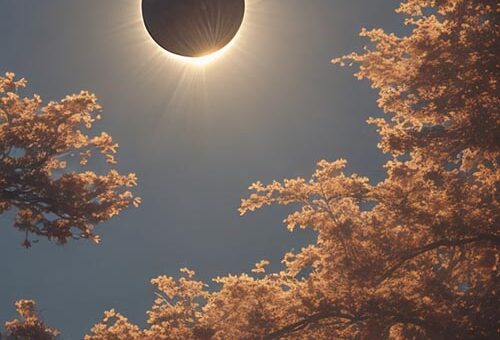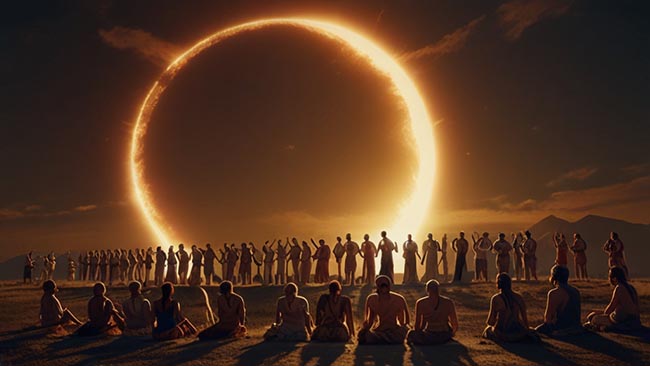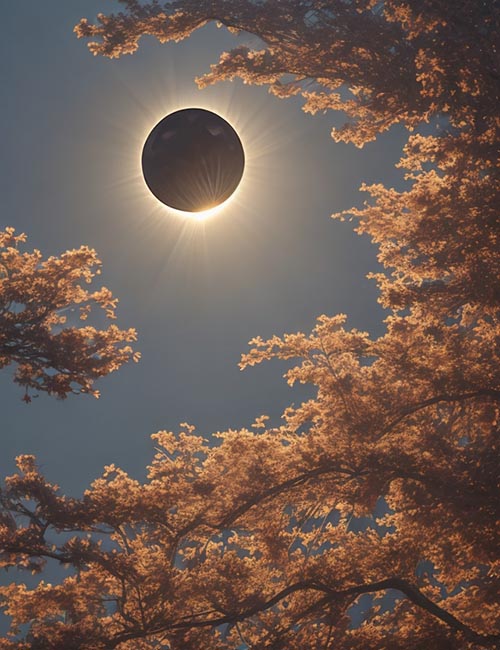
Ancient civilizations often viewed solar eclipses with a mix of awe, fear, and wonder due to their lack of understanding of the celestial phenomena behind these events.
Solar eclipses, where the Moon passes between the Earth and the Sun, temporarily blocking the Sun’s light, were unpredictable and awe-inspiring to people who relied heavily on the patterns of celestial bodies for timekeeping, navigation, and agricultural purposes.
Below are a few reasons for their fear and reverence.

Divine or Ominous Signs
Many ancient cultures interpreted eclipses as omens or messages from the gods, often believing them to be signs of divine displeasure or warnings of impending doom. This could incite fear and lead to efforts to appease the gods.
Disruption of the Natural Order
The Sun was seen as a life-giving force in many cultures, and its disappearance during the day was contrary to the natural order of things, causing confusion and fear.

Association with Myths and Legends
Myths often explained eclipses through stories of monsters or deities consuming the Sun. For example, the Vikings believed that a wolf was chasing the Sun, and when it caught it, an eclipse would occur. Such stories added a layer of supernatural fear to the phenomenon.
Impact on Leaders and Nations
Eclipses were sometimes seen as foretelling the death of a king or the fall of a nation, leading to political and social unrest.
Unpredictability
Until the mechanics of solar eclipses were understood, their unpredictability contributed to the fear and mystery surrounding them. The sudden darkening of the sky during the day could be quite unsettling.
As astronomical knowledge grew, civilizations began to predict and understand the nature of eclipses, which helped diminish the fear and instead promoted a sense of curiosity and scientific inquiry.

